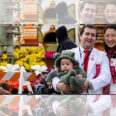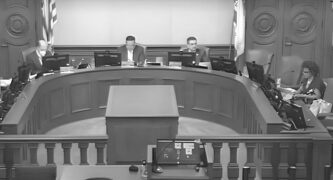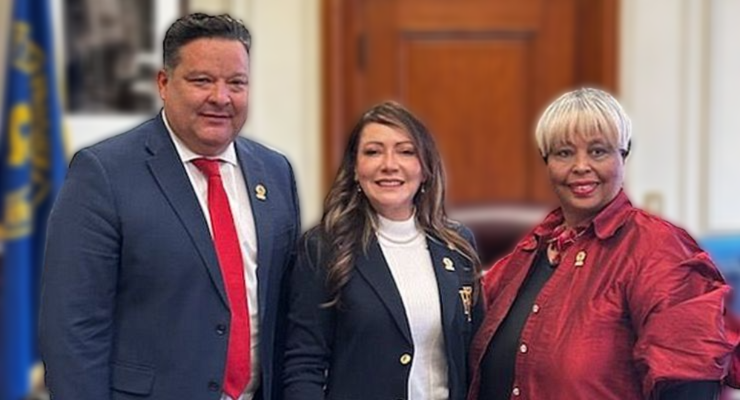
Pasadena voters face important November ballot choices about local term limits and campaign reform. It’s timely to reflect on the role of our City Council – both individually and as a body.
Views differ – it’s healthy there’s a range of opinions. What’s unhealthy is a lack of discussion and mutual understanding of those differing perspectives.
Some advocate for the “traditional” role – overseeing the professional staff through the City Manager, concentrating on making sure the water flows, the streets are clean, the police respond quickly and the potholes get filled.
Others insist the Council tackle issues like affordable housing, climate change, workers rights and tenant protections as well as take stands on issues from abortion to international peace. Most give those differences little thought — except at election time when (unfortunately) simplistic soundbites too often substitute for meaningful dialogue.
Let’s remember that for decades, the Pasadena Council was officially known as the “Board of City Directors.” It was consciously modeled on a corporate board of directors. Most office holders were local business and professional men. They held leisurely business meetings in the morning and then adjourned for lunch together at the University Club. They relied on the City Manager to efficiently manage operations.
Beginning in the Sixties, things began to change. Not only did the make-up of the board see women and “minorities” begin to serve, but “issues” came to the fore.
Arguments arose over redevelopment, historic preservation, neighborhood revitalization and affirmative action. These and other concerns sparked vigorous community debate, changing the “gentlemanly” nature of Council meetings.
Sometimes hundreds of residents turned up to have their say on heated controversies. The old guard was caught off guard by new voices and new demands.
To this day, some lament the intrusion of “politics” into local governance. While they may not yearn for a return to the dominance of conservative white men running the city, they advocate for sticking to the City’s business of providing quality services.
It’s a coherent and understandable stance. Nobody wants Council meetings to degenerate into the kind of tribal, polarized power politics we see so much of in Sacramento and Washington. We all want efficient and effective services to keep our community healthy, safe and livable. Divisive arguments can distract the Council from working together for the common good.
Yet there are other perspectives that bear upon the role of the Council and its members. More than all but a half dozen or so of the 88 cities in Los Angeles County, Pasadena is a microcosm of Southern California’s diversity.
It’s not easy striking a balance between “business as usual” and responding to changing needs.
“Politics” doesn’t have to be angry fighting – it can illuminate and help address the conflicts and friction that inevitably play out in a community that spans the entire spectrum of contemporary America. Pasadena is a shared home for those who inhabit the stratosphere of unimaginable wealth – and those who struggle to survive living on our streets. And everyone in between.
Some elected Councilmembers may not want to grapple with those glaring contrasts, but who else will? Ignoring “political” issues doesn’t make them go away. The Council ignored the late Councilmember John Kennedy’s persistent calls for civilian oversight of police – until the issue was forced by the deaths of George Floyd in Minneapolis and Anthony McClain in Northwest Pasadena.
The Council steered clear of addressing the impact of soaring rents on tenants who make up a majority of our residents – until renter activists drafted, qualified and passed a far-reaching rent control law at the ballot box. The Council was content to abide by State mandates on renewable energy until citizens clamored for our City to take an active leadership stand to deal with climate change.
There is a role for Council leadership in finding common ground on issues like these. Like most things in life, it’s not black and white. Councilmembers must be responsive not only to complaints about coyotes and barking dogs, but also confront the great issues of our times – as they play out here in Pasadena. It’s less “either/or” than “both/and.” It’s good we have seven district members and a citywide elected mayor. Pasadena is too diverse for everyone to see things the same way. Acceptance of that diversity can help us work together to successfully address both the traditional concerns of city government as well as the emerging challenges we face.
The key is mutual respect. The Greeks, who invented democracy, had a different view of “politics.” Our word comes from their word “polis.” To the Greeks, the “polis” was the “citadel” or “city” that they shared with their fellow citizens – and politics was the lifeblood of defending and enhancing the good life through shared public debate and action. In other words, “democracy.”
By the way, they had a word for people who had no time for “politics.” Look it up in the dictionary – they called such people “idiots.” They couldn’t comprehend why people wouldn’t take an active interest in the life of the community around them.
We are not idiots.
It’s okay that we disagree. But if we want a thriving community, we have to come together to reconcile our differing perspectives to seek the common good. The City Council can play an important role in engaging us all in that noble and vital pursuit.
Rick Cole is District 2 Councilmember-elect, taking office in December. He previously served as Mayor of Pasadena and City Manager of three Southern California cities. He is currently the Chief Deputy Controller for the City of Los Angeles.














 4 comments
4 comments


